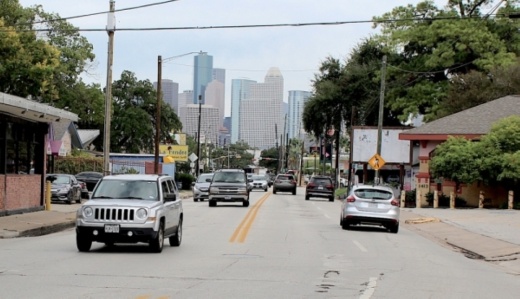In 2016, the city of Houston convened local residents, business owners and civic leaders to provide input on a plan for the corridor that attracts a high volume of visitors but has lagged behind in infrastructure improvements.
The result was a detailed plan to upgrade dangerous intersections, add bike lanes and improve sidewalks. That proposal, however, has since been pushed back on the city’s annual list of infrastructure priorities known as the Capital Improvement Plan or CIP. It was removed from the list altogether in the Fiscal Year 2020-2021 and did not return to the FY 2021-22 plan which was adopted June 23.
“This is a long term project,” District C Houston City Council Member Abbie Kamin said. ‘We are going to push as hard as we can to get the funding to move forward and at the same time I am doing everything I can to focus on the area and work on improvements.”
In the fiscal year 2019-20 CIP, construction was forecast for 2023. The project has been on the CIP since 2016, ranging in estimated cost from $14 million to almost $18 million. The proposal targets Elgin Street and Westheimer Road from Main Street in midtown to Montrose Boulevard.
In the meantime, Kamin said she has been working with local groups such as the Montrose Tax Increment Reinvestment Zone to organize and fund smaller-scale improvements such as individual crosswalk and traffic signal upgrades. She also plans to help facilitate an application for grant funding from the Houston-Galveston Area Council. The project was rejected by the council in 2018, under a previous set of project ranking criteria.
The original proposal also needs to be updated to reflect flood mitigation efforts that take into the National Oceanic and Atmospheric Administration’s Atlas-14 study, Kamin said. The study updated the nation’s flood zone maps to reflect rainfall patterns that have intensified since the early 1990s.
The FY 2021-22 CIP lays out a $6.2 billion schedule of projects over the next five years. It includes projects directly funded by the city's dedicated street and drainage fees as well as tax-increment reinvestment zones, which oversee projects in their defined areas.
Matt Dulin contributed to this report.





